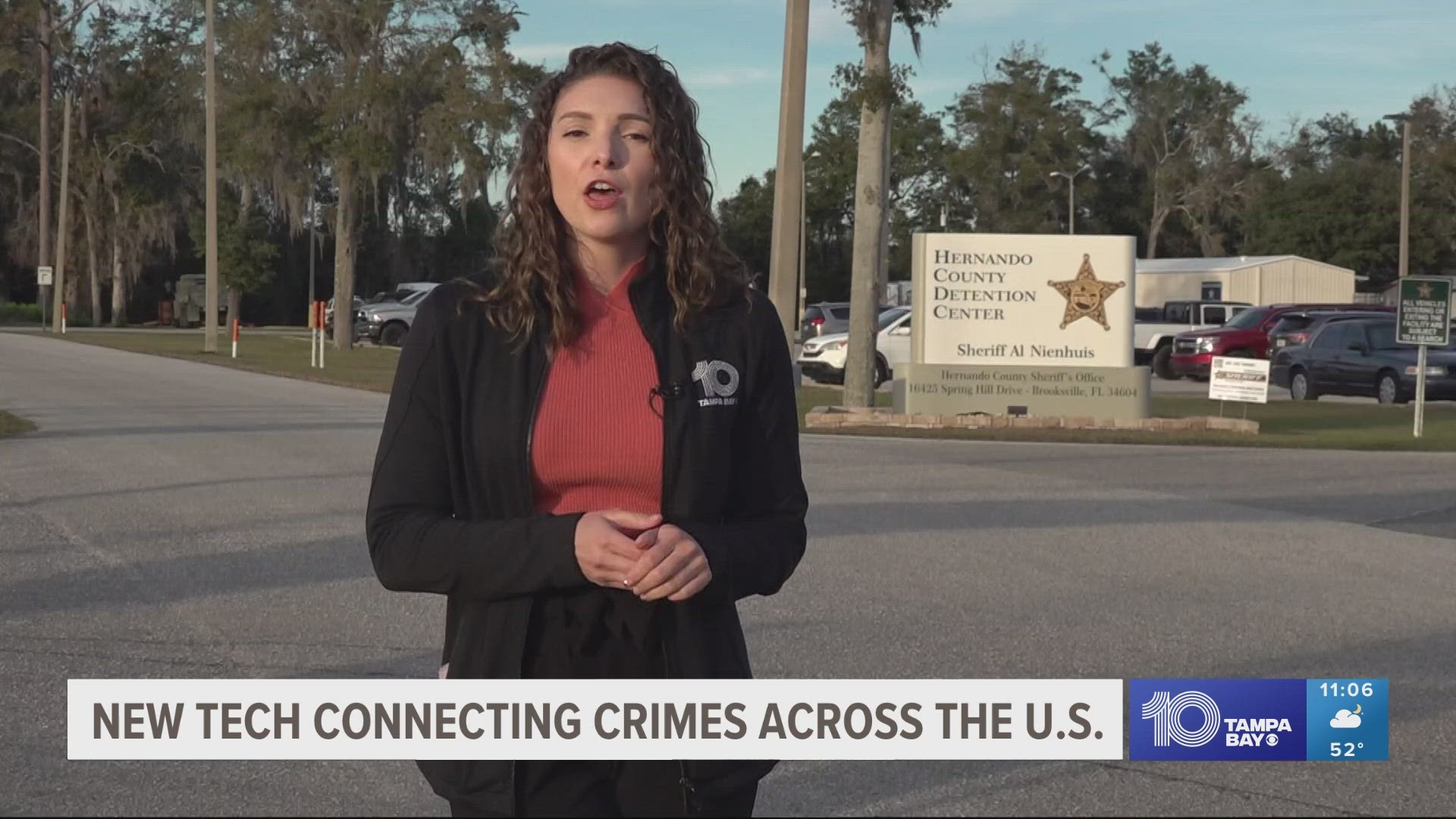BROOKSVILLE, Fla. — When an inmate is booked in a Florida county jail, their fingerprints are scanned and a DNA swab is collected. That DNA swab is sent to the Florida Department of Law Enforcement, where it is processed in a DNA lab.
A DNA analyst then inserts the data into a nationwide data system, where the data is cross-matched to open investigations everywhere.
It takes weeks for FDLE to process and input DNA data.
"It could take forever, not knowing if the person that we have is actually in the database that committed a crime," Sgt. Jose Pabon explained.
Pabon is the booking sergeant at the Brooksville Detention Center. In the time it takes for FDLE to process DNA data and alert investigating agencies, there's a chance the individual booked into jail has bonded out.
But thanks to new technology at the center, it takes just a few hours to learn if an inmate's DNA is connected to other investigations.
Qualifying offenders include both juveniles and adults who are either:
- Committed to a county jail
- Committed to or under the supervision of DOC or DJJ
- Convicted of specified misdemeanor offenses;
- Convicted of or arrested for any felony offense or attempted felony offense
Hernando County is the first county in the state to launch this pilot program, making Florida the second state in the country to use rapid DNA technology in the booking process. Louisiana is the first state to launch this program.
The DNA processing software not only significantly quickens the time it takes to yield results, but no DNA lab or human interaction is required.
Once a DNA sample is inputted into the Rapid DNA machine, it checks if the DNA matches any DNA inputted in unsolved crimes like homicide, sex crimes, kidnappings and terrorism. If there is a match, the booking agency, arresting agency and investigating agency are all immediately notified.
"Having the system in this county and throughout the states is going to help dramatically in solving the crimes that are being committed," Pabon said.
It's one more tool to help keep bad guys off the streets and give assurances to victims across the country that crimes have consequences.
"They go through a lot of trauma, not knowing where the criminal might be and if they're still in danger," Pabon shared. "So with this technology, we'll be able to give them peace of mind."
The sheriff's office said counties across the state have already reached out regarding how to get this technology launched in their jails.
The use of this new technology is made possible through a bill recently passed by the Florida legislature. HB 1105 created the Rapid DNA Grant Program under FDLE to annually award grants, from funds specifically appropriated to the grant program, to county jails or sheriffs’ offices to procure Rapid DNA machines and other necessary supplies required to quickly process DNA samples in support of the statewide DNA database.
Roughly a dozen counties in the state have been approved for the use of rapid DNA.
Sheriff Al Nienhuis is seeking approval from FDLE and the FBI to use this technology to process crime scene evidence faster. It could bring answers to investigations in a matter of hours, instead of weeks.
Malique Rankin is a general assignment reporter with 10 Tampa Bay. You can email her story ideas at mrankin@10tampabay.com and follow her Facebook, Twitter, and Instagram pages.

